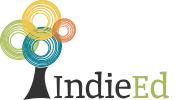Brinnng… Brinnng… Click … “Hello?”
“Hi, I was referred to you by Jane Smith. My son Sean has not been doing well in Calculus AB. He has the final tomorrow and needs a high score to keep his grade for a scholarship. Later this afternoon he must attend basketball practice – would you have two hours available starting at 6 pm?”
When we meet, Sean looks tired and tense. We attack the test material in earnest, squeezing in crucial refreshers here and there. Sean is initially quite receptive and, with simple hints, holds his own on a few problems, but his performance is rapidly declining. At the 45 minutes mark, he looks very tired struggling with my explanations and confesses he had to skip dinner to make it in time to our session, straight from practice. His team has been gunning for the state championship and they are in the playoffs – that means longer and harder practices! I prod him to drink some water and have a candy bar for a quick sugar boost. On the final stretch, our tempo slows down considerably – unlikely he will retain much, if anything, from this point on. Before he leaves, I give Sean some final words of advice, he appears reassured, some uncertainties still linger. “Good Luck tomorrow!” Hope he has a restful night.
A fictional scenario, to be sure, but how many tutors, students, and parents have lived similar situations? I did, more than once.
It is rather common for a parent to seek remedial tutoring only a few days in advance of some important, grade-setting test, and with stringent requirements on when a tutoring session can be scheduled. The students are usually under a lot of pressure, both at school and at home, short on sleep, and short on time to follow up on the tutoring session with further study on their own. What is asked of the tutor is to quickly improve a bad situation without reducing, let alone removing, the causes which led to poor performance in the first place. In these conditions, full recovery is difficult.
Remedial tutoring – the right way
Tutoring occurs in the context of that highly complex, balancing act which is the daily life of a student. A tutoring session is most productive after the student has delved into the material independently and has narrowed down difficult sections in order to facilitate a focused intervention within the 1-2 hours normally allotted. Tutoring mostly provides guidance, while the main thrust in the recovery is left to the student, who has to carry on with further, independent practice. For remedial tutoring to be effective, it has to be administered well in advance of important tests, allowing enough time for the session material to settle. The over-scheduling of a student’s activities, the main culprit of poor academic performance, needs to be addressed in discussions involving tutor, student, and parents, and the student’s activities portfolio must be reduced in order to make time for tutoring and the extra study required. Volunteering and varsity sports look good on a college application, but only as add-ons – nothing beats a solid GPA and high SAT/ACT scores to help students get in the college of their choice.
Optimal tutoring
Tutoring is far more effective when it is integrated into a student’s schedule at the start of the school year. By setting a schedule conducive to the best conditions for learning, tutor, student, and parents act in concert toward the betterment of the student. Then, the weekly tutoring session becomes a stable complement to standard academics, allowing the student to rely on personal, expert attention to timely clarify and assimilate concepts and methods presented in the classroom. As a valuable by-product of this ongoing interaction, the relationship between student and tutor is strengthened, with the latter assuming at times the role of mentor, further supporting the student’s academic and personal growth throughout the year.
Somebody once said: “Time and I against two others, whomever they are!” Learning difficult subjects like Math takes time. Not just classroom time, but quiet time spent outside the classroom unhurriedly perusing a textbook, reading and re-reading a paragraph to full comprehension, understanding all worked out examples, and doggedly pursuing solutions to exercises. It’s called studying, folks, and it takes plenty of focused and unhurried time! While in high school, the boundaries of one’s own knowledge should be expanded, the skills needed to acquire that knowledge should be strengthened, the ability to work under pressure tested, and appealing paths in particular fields should become well-defined goals, all of which takes time. If a college degree is the goal, there shouldn’t be any doubt in the minds of students and parents that quality studying must be given priority – studying hard in high school has huge payoffs both in college and in life after graduation.
Finally, from an holistic perspective, optimal tutoring must also involve the physical well-being of the student. The ancient Romans used to say: “Mens sana in corpore sano” (Men-s sah-nah ee-n corpo-reh sah-noh) — healthy mind in healthy body. In our times, this translates into restful and abundant sleep, away from light sources and personal electronics; disciplined hydration, just water, no sugary drinks; nutritious meals, especially breakfast, to fuel the brain and control mid-morning cravings; and daily sport activity, to play, relax, reset … and get ready for yet another exciting tutoring session!
